February is Black History Month, also known as National African-American History Month, an annual celebration of the role of African-Americans in our country’s history. And . . . The Walking Classroom has plenty of podcasts to support your study of this timely topic! In fact, with about a dozen podcasts from which to pick, this topic warrants not just one, but two blog posts!
Designing History and Making History
Thanks to The Walking Classroom, you and your students can meet many figures prominent in not only Black History, but in American History as well! Learn all about Benjamin Banneker, a skilled mathematician, mechanical genius, and self-taught surveyor. Banneker laid out the plans for our nation’s capital (5-#28, Complete-#153).
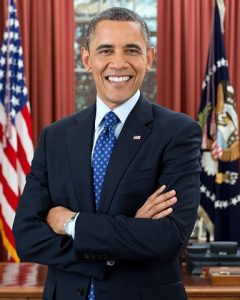 Or explore key moments in the life of Barack Obama (4-#12, Complete-#125), the first African-American president. The podcast about our nation’s 44th president addresses his struggles, as well as his successes. It reminds students that with courage and a strong work ethic, one can overcome many obstacles.
Or explore key moments in the life of Barack Obama (4-#12, Complete-#125), the first African-American president. The podcast about our nation’s 44th president addresses his struggles, as well as his successes. It reminds students that with courage and a strong work ethic, one can overcome many obstacles.
Your students will definitely enjoy learning about these two inspiring men who made their mark (literally and figuratively) on Washington, DC!
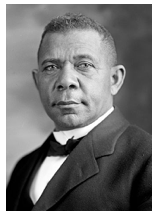 Educators and Inventors
Educators and Inventors
And it’s not just in our nation’s capital that history is made! While he did spend some time in Washington, DC, as an advisor to several presidents, Booker T. Washington (4-#87, Complete-#111), also earned acclaim for his work in education.
A leader in the African-American community, Washington found himself hired to open a new school for black students in Tuskegee, Alabama, in 1881. When he arrived as the sole teacher, the school didn’t have any buildings or supplies. In fact, Washington had to teach class in a church! From these humble beginnings, he led the Tuskegee Institute to become a major university.
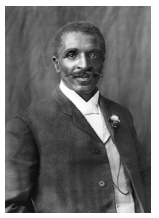 Another notable individual linked to Washington and the Tuskegee Institute is George Washington Carver (5-#29, Complete-#158). An American botanist and inventor recruited by Washington, Carver moved to Tuskegee in 1896. There, he headed the agricultural department and taught for the rest of his life.
Another notable individual linked to Washington and the Tuskegee Institute is George Washington Carver (5-#29, Complete-#158). An American botanist and inventor recruited by Washington, Carver moved to Tuskegee in 1896. There, he headed the agricultural department and taught for the rest of his life.
Renowned for his research in crop rotation, Carver also discovered many uses for the peanut. Thanks to his ingenuity, we have peanut oil, clothing dyes, plastics, automobile fuel, and, of course, peanut butter!
Authors and Activists
Explore the work of twentieth century writers Langston Hughes (4-#16, Complete-#34) and Maya Angelou (4-#17, Complete-#37). Pull up some of their poetry. Then reflect with your students. Discuss how these authors used their words to share their unique histories and the history of their time in their distinctive voices and styles. Inspired by these writers, have your students create short literary works of their own to similarly reveal their own stories.
Or step further back in time . . . to the nineteenth century. Do a bit of cross-curricular work to set the stage. Introduce your students to the world in which the voices of women’s rights and civil rights activist Sojourner Truth (5-#51, Complete-#81) and social reformer Frederick Douglass (5-#52, Complete-#82) came to speak. Make it real for your students. Provide them with the necessary historical and social perspective, and take advantage of primary sources to gain a deeper understanding of these abolitionists.
Extending the Lesson and Some Extras . . .
There’s plenty out there to support your study of events or individuals in African-American history this month. Find the perfect printable to pair with your podcast or to use as an independent activity for your students! You will discover a number of great literary links to be made as well!
Searching for more? Check out the blog in two weeks for more ideas on this timely topic. From podcasts to incorporate to ways to extend the lesson and bring Black History to life, you can find it here!


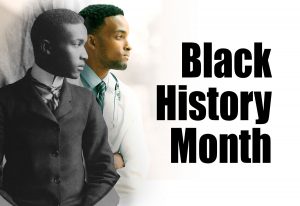
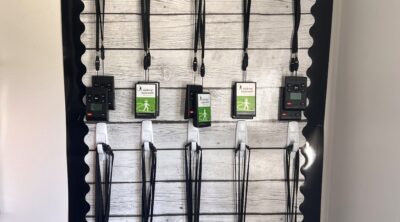
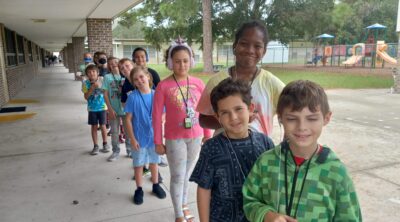
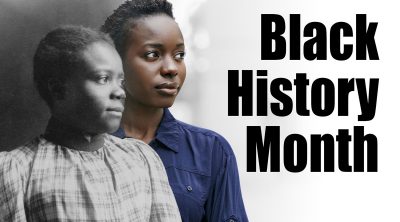
My reading class listened to Podcast 78 (The Underground Railroad) and 79 (Harriet Tubman) during our lessons on Black History, and we had such a wonderful discussion about how while we celebrate Black History in February, we learn about Black History all year long. Having these podcasts has been a great way to work more Black History into my lessons this year and they support my student’s learning in their Social Studies class.